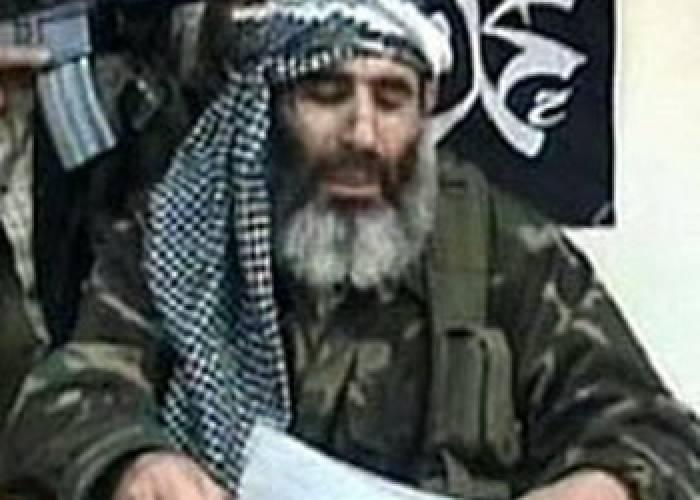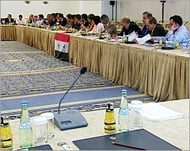Former Syrian Vice President and leader of the National Salvation Front, Abdel Halim Khaddam, ridiculed the recent statements made by Syrian President Bashar Al-Assad in his speech about Arab nationalism.
During an interview with the Italian news agency Aki, the prominent Syrian opposition figure said, “National thought is not just a term to be spoken; it is a culture and a practice. How can we expect this failed ideology, which has failed to understand national unity and has made serious mistakes leading to division and fragmentation within the country, to result in a coherent Arab action? Can we view separating from the Arab world and aligning with Iran as an expression of national thought?”
Regarding the situation in Lebanon, Khaddam, who held responsibility for it for many years, presented evidence of the regime’s involvement in fueling the sectarian crisis in Lebanon. He specifically mentioned the issue of Fatah al-Islam, a group that engaged in a two-month-long conflict with the Lebanese army. He questioned, “How did Fatah al-Islam acquire such a significant amount of explosives and weapons that are beyond the control of even the Lebanese army?” Khaddam pointed out that the Syrian regime provided these weapons, as Fatah al-Islam is an organization established by the Syrian Military Intelligence and overseen by Asif Shawkat, the son-in-law of the Syrian president and the head of Syrian military intelligence. Due to ongoing investigations, Khaddam refrained from disclosing the names of other officers involved.
Khaddam stressed that it’s implausible to believe that Shakir Absi, the leader of Fatah al-Islam, managed to create an organization with a large arsenal of advanced weapons and skilled fighters within just five months.
Regarding the threats made by Bashar Al-Assad, his deputy Farouq al-Shara, and his foreign minister Al-Muallem about Lebanon potentially exploding if an international tribunal is formed to investigate Hariri’s assassination, Khaddam questioned, “Should we ignore these threats, Al-Khater?” He acknowledged that the regime has the capability to cause destruction in Lebanon but warned that the consequences would be catastrophic for Syria itself, fostering the growth of extremism within the country.
Concerning the possibility of peace between Syria and Israel, the former Syrian Vice President stated that Bashar’s apparent endorsement is an attempt to hide his undisclosed contacts. Khaddam noted that Bashar is sending a message to certain political factions in the Arab arena that the alleged secret negotiator, Ibrahim Suleiman, is a fabrication, and that he himself adheres to principles.
Khaddam emphasized that the Damascus regime lacks seriousness and the ability to achieve peace. He added that Bashar cannot meet Israel’s demands, making it impossible for Olmert or any other Israeli prime minister to establish peace with the regime.
Regarding the authenticity of Rabin’s proposal, Khaddam noted discussions about it but clarified that they are verbal statements made by former Israeli Prime Minister Yitzhak Rabin to President Bill Clinton. These statements outlined security conditions, including the absence of Syrian forces and factors related to border control and water resources. According to Rabin’s proposal, if Syria complies with these conditions, Israeli forces would withdraw from the Golan Heights.
Khaddam concluded by expressing doubt about the late President Hafez Al-Assad’s ability to fulfill Rabin’s conditions.
The former Syrian Vice President accused the Damascus regime of supporting terrorism in Iraq. He referred to an official announcement in the Iraqi city of Najaf, stating that a car with a significant amount of explosives and a booby-trapped tanker were discovered. These vehicles originated from the Syrian border, indicating their Syrian origin. Khaddam asserted that such an organization couldn’t transport such explosives from Syria without the knowledge of the Syrian authorities. He highlighted the capabilities of Syrian intelligence services, questioning how they could fail to monitor organizations involved in preparing explosive materials.
Khaddam stated that these explosives were sent to factions in Najaf with close relations to the regime, particularly referring to the Sadrist movement. He emphasized that this information isn’t mere accusations but facts announced by the Iraqi government over a month and a half ago.


